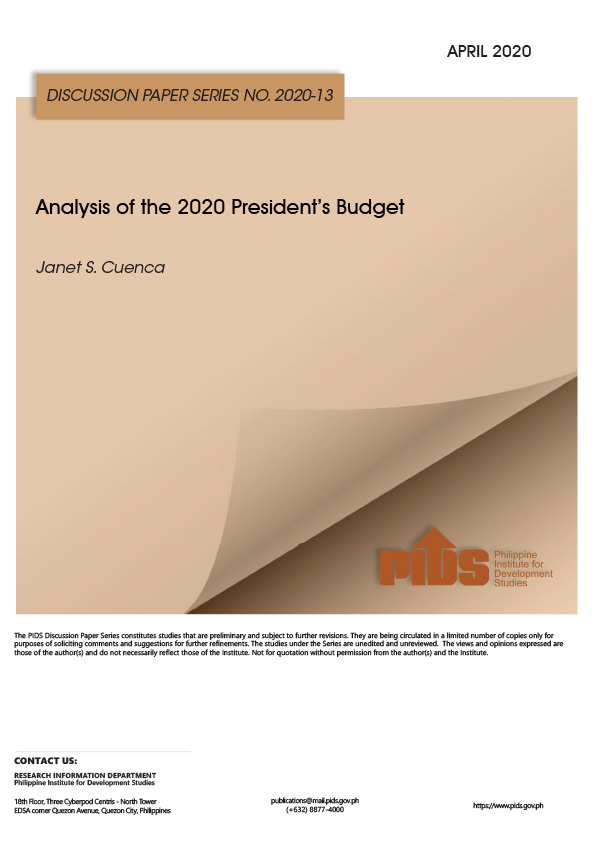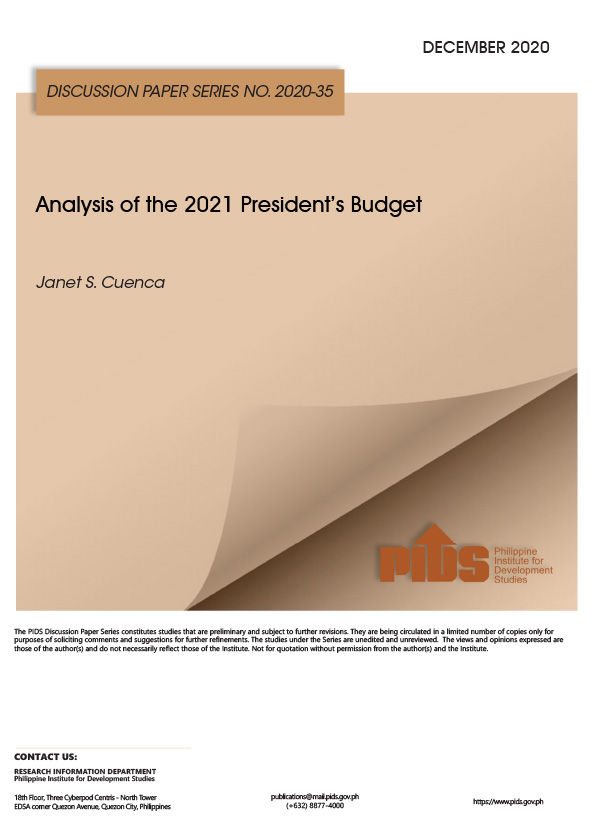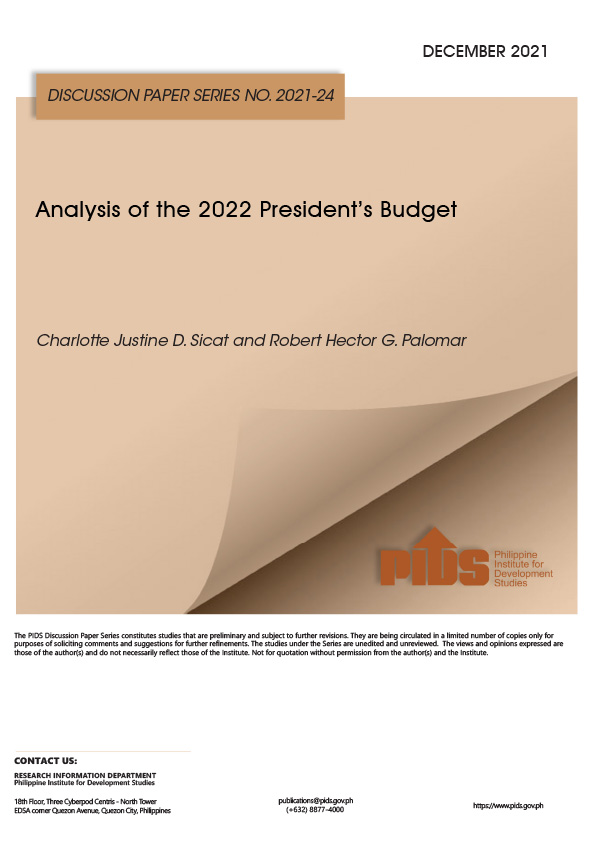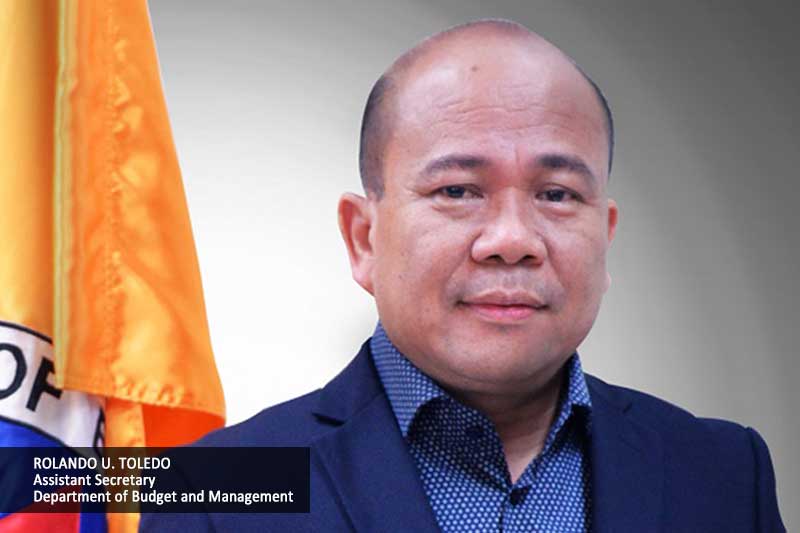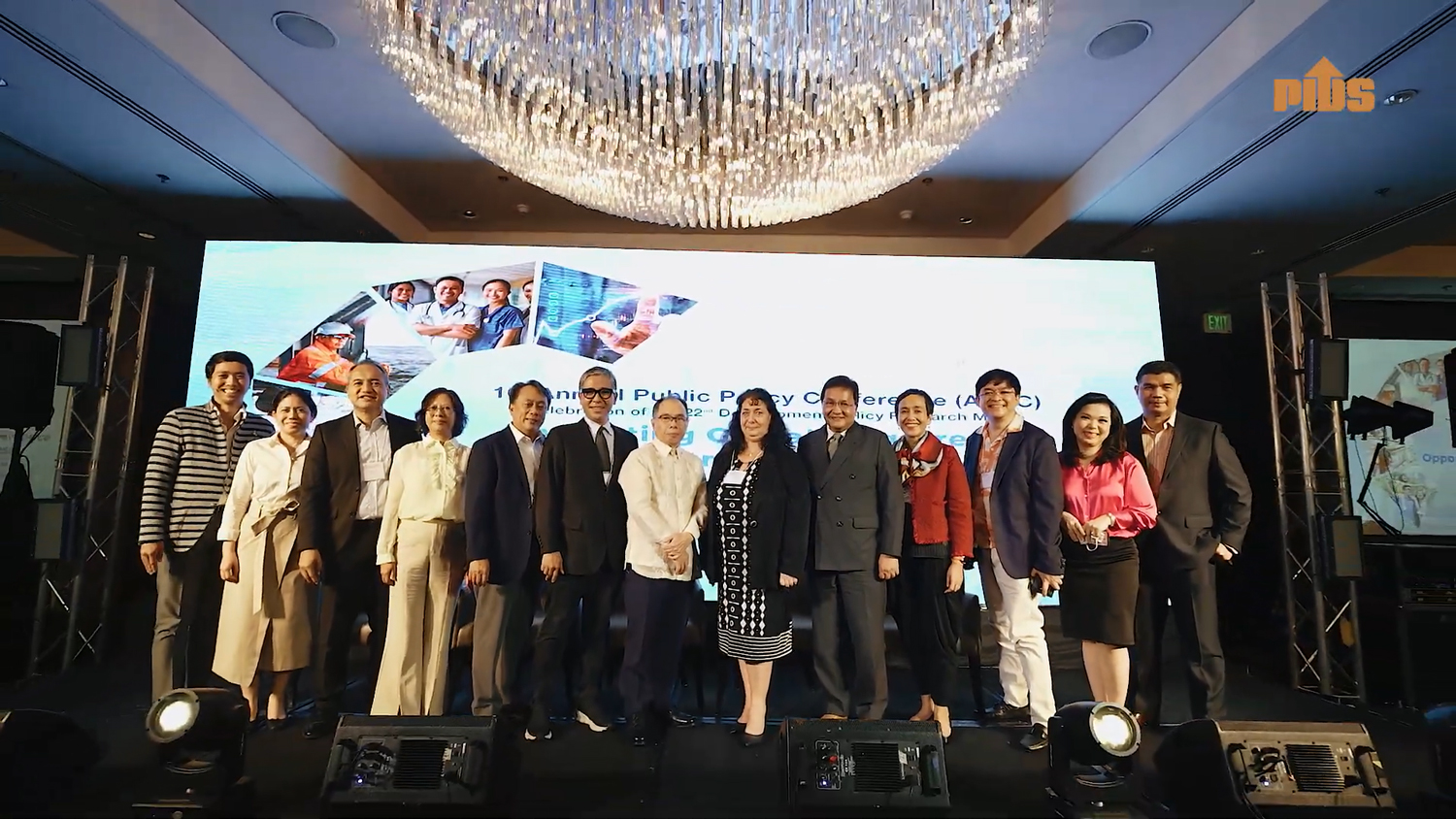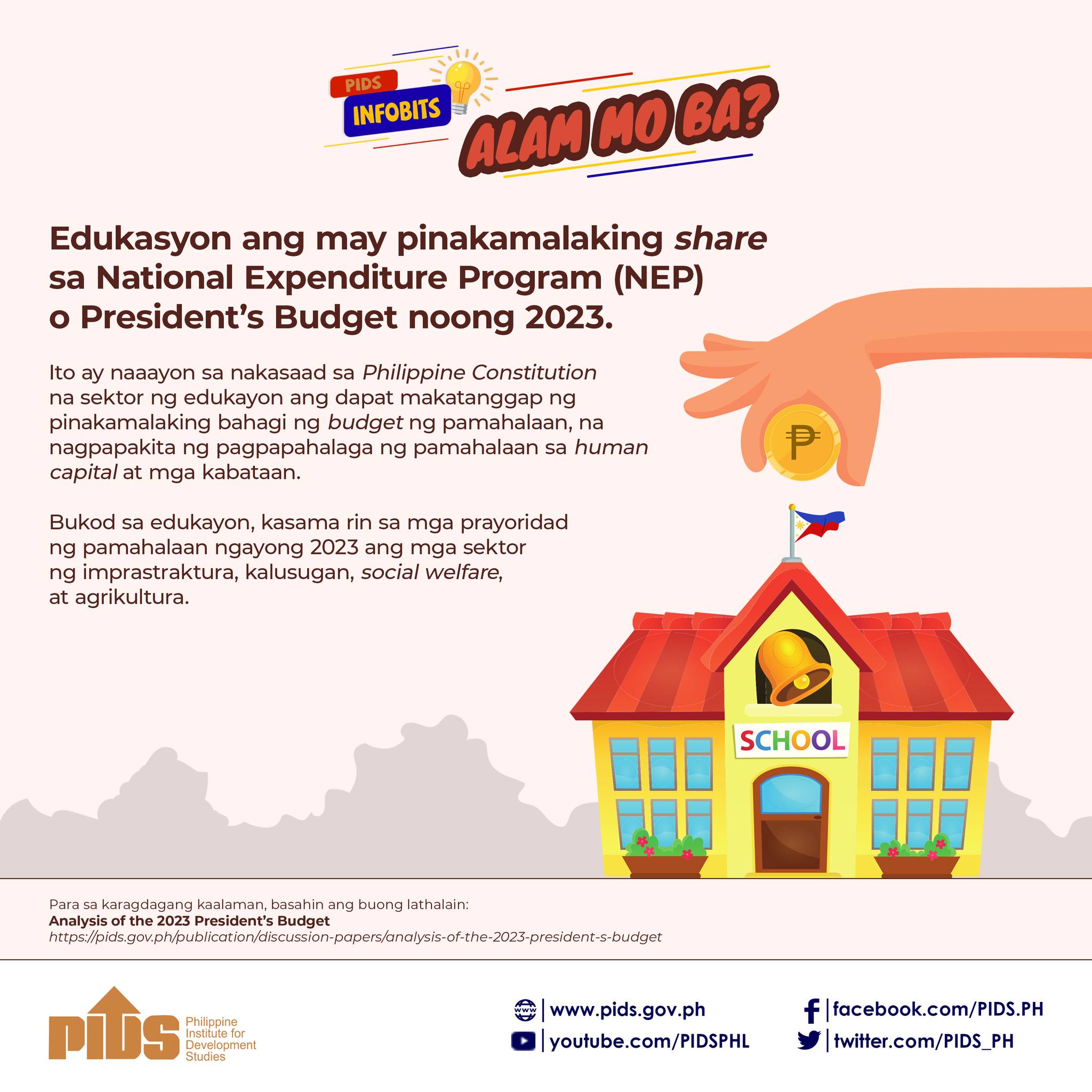
Developing an integrated financial management information system (IFMIS) will help improve public financial management in the Philippines.
This was one of the key points that Fabian Seiderer, lead public sector specialist at the World Bank, raised at a webinar recently organized by the Philippine Institute for Development Studies (PIDS). The webinar featured the PIDS study “Analysis of the 2022 President's Budget” that assessed how the 2022 National Expenditure Program, also known as the President’s budget, embodies the priorities identified by the national government.
Seiderer noted that the Philippines is making progress with improving its financial management system by making digital transformation a policy priority in the 2022 budget proposal. However, he was concerned that the allocated budget is “very little given the urgent need of an IFMIS”. He added that the IFMIS is the “heart of the public financial management’s digital transformation”.
He emphasized that developing an IFMIS is essential in ensuring fiscal discipline and sustainability in times of crisis.
“It [allows for] reallocations by having timely, comprehensive, and consistent data on budget execution. It helps reallocate [budget] to where it is much needed,” Seiderer explained. He noted that having an information system would integrate data on budget allocation and actual spending. Thus, an IFMIS would optimize budget allocations and reallocations based on emerging priorities such as the COVID-19 pandemic.
Another benefit of an IFMIS is improving the timeliness and cost-efficiency of public spending as it enables the national government and local government units (LGUs) to go paperless. According to Seiderer, this would result in a “much faster budget execution and electronic processing of more than four million financial transactions a year”.
“It improves cash management and brings huge savings to the government in this fiscally constrained situation,” Seiderer explained.
Similarly, with the IFMIS enabling direct electronic fund transfers, Seiderer said that the transaction costs for both the government and its recipients would be reduced.
More importantly, Seiderer stressed that an IFMIS would be beneficial to LGUs’ budget execution and oversight, as this would allow them to have a “much more comprehensive, granular, and timely access to financial data”.
With these benefits, Seiderer urged the government to resume the roll-out of the Budget and Treasury Management System (BTMS). The government’s Public Financial Management website defines BTMS as “an integrated, web-based information management system that will replace the existing budget management, execution, accounting, and reporting systems” of the government.
“BTMS is the core of an IFMIS…It helps digitize public financial management processes, including budget formulation, budget execution…as well as [improve] financial reporting and accounting,” Seiderer explained.
You may watch the webinar at https://fb.watch/a0SiU4XfoB/ or https://youtu.be/6L63pHiKr_4.
For more videos of PIDS events, go to https://www.pids.gov.ph/videos.
This was one of the key points that Fabian Seiderer, lead public sector specialist at the World Bank, raised at a webinar recently organized by the Philippine Institute for Development Studies (PIDS). The webinar featured the PIDS study “Analysis of the 2022 President's Budget” that assessed how the 2022 National Expenditure Program, also known as the President’s budget, embodies the priorities identified by the national government.
Seiderer noted that the Philippines is making progress with improving its financial management system by making digital transformation a policy priority in the 2022 budget proposal. However, he was concerned that the allocated budget is “very little given the urgent need of an IFMIS”. He added that the IFMIS is the “heart of the public financial management’s digital transformation”.
He emphasized that developing an IFMIS is essential in ensuring fiscal discipline and sustainability in times of crisis.
“It [allows for] reallocations by having timely, comprehensive, and consistent data on budget execution. It helps reallocate [budget] to where it is much needed,” Seiderer explained. He noted that having an information system would integrate data on budget allocation and actual spending. Thus, an IFMIS would optimize budget allocations and reallocations based on emerging priorities such as the COVID-19 pandemic.
Another benefit of an IFMIS is improving the timeliness and cost-efficiency of public spending as it enables the national government and local government units (LGUs) to go paperless. According to Seiderer, this would result in a “much faster budget execution and electronic processing of more than four million financial transactions a year”.
“It improves cash management and brings huge savings to the government in this fiscally constrained situation,” Seiderer explained.
Similarly, with the IFMIS enabling direct electronic fund transfers, Seiderer said that the transaction costs for both the government and its recipients would be reduced.
More importantly, Seiderer stressed that an IFMIS would be beneficial to LGUs’ budget execution and oversight, as this would allow them to have a “much more comprehensive, granular, and timely access to financial data”.
With these benefits, Seiderer urged the government to resume the roll-out of the Budget and Treasury Management System (BTMS). The government’s Public Financial Management website defines BTMS as “an integrated, web-based information management system that will replace the existing budget management, execution, accounting, and reporting systems” of the government.
“BTMS is the core of an IFMIS…It helps digitize public financial management processes, including budget formulation, budget execution…as well as [improve] financial reporting and accounting,” Seiderer explained.
You may watch the webinar at https://fb.watch/a0SiU4XfoB/ or https://youtu.be/6L63pHiKr_4.
For more videos of PIDS events, go to https://www.pids.gov.ph/videos.

